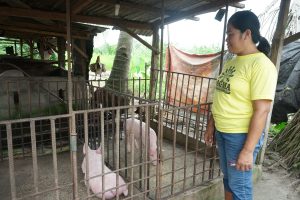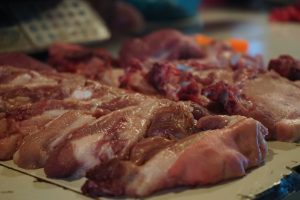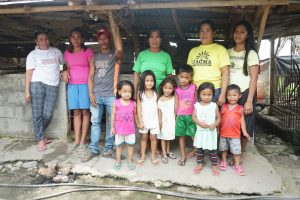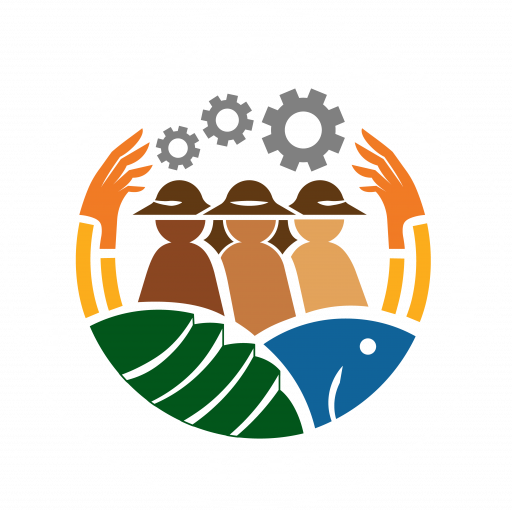“Fat Pig, Fat Income“ depicts the success story of Tibao San Vicente Ferrer Multi-Purpose Cooperative from the municipality of Mlang, North Cotabato province. The group received interventions on the Swine Fattening Project.
BACKGROUND
With the government’s thrust to alleviate poverty in the Philippines’ marginalized sectors, the Department of Agriculture (DA) through its Special Area for Agricultural Development (SAAD) Program funded its 10 priority provinces in 2016, all of which have the highest poverty incidences.
The Provincial Local Government Unit (PLGU) of Cotabato endorsed the project proposal of Tibao San Vicente Ferrer Multipurpose Cooperative (SVFMPC) to be the beneficiary of SAAD’s Swine Fattening Project.
A total of 71 piglets were distributed to 29 farmer-partners of the SVFMPC on August 23, 2018.
The project aims to provide additional income to farmer-beneficiaries, apart from their primary source of income which is rice farming.
INNOVATIONS/ GOOD PRACTICES

Marlyn Santillan, member of Tibao San Vicente Ferrer Multi-Purpose Cooperative
The cooperative’s management style is democratic and consultative. It works within the principles of participation, transparency, and accountability. The cooperative is concerned about the members’ development along with organizational growth.
To ensure the project’s success, a Monitoring Committee (MC) was created to conduct regular inspections. With this, the project updates are properly reported monthly through its management meetings. This is a way to identify the well-performing farmer-beneficiaries and recommend them to the management to become the next cycle farmer-beneficiaries.
Through consultations, there are policies formulated which serve as agreements between the cooperative and its members.
The guidelines set by the cooperative are as follows:
- Recipients must be active members of the cooperative, who have attended meetings and activities of the organization in the previous years.
- The members of the cooperative provide proper sanitation materials for each household to ensure the excellent condition of the swine’s enclosure. The project monitoring committee, together with the Office of Municipal Agriculturists (OMAg)-Extension Workers and SAAD Area Coordinators, conduct a thorough inspection of the area to make sure that the swine have a favorable enclosure to prevent infections and diseases.
- The member-beneficiaries are encouraged to adopt a technology from Korea that keeps piggeries odorless.
- The cooperative, through its monitoring committee, identifies the beneficiaries every cycle. One cycle is equivalent to four months with a 20-day grace period.
- To maintain the livelihood project in place, the members of the SVF MPC are encouraged to insure the swine every cycle/year to the Philippine Crop Insurance Corporation (PCIC). In the event of unfortunate incidents not covered by the insurance, the recipients are liable to replace the dead swine. The SVF MPC Officers solely have the authority to procure the replacement swine as recommended by the recipients.
- Upon marketing of the swine, the member must inform the project monitoring committee or any officers of the cooperative, so that the officer-in-charge can assist in marketing and proper recording.
- The treasurer of the cooperative collects an amount of PhP 200 for each swine per cycle project operation which will be deposited to the organization account. The money is from the farmer-beneficiary’s sold swine (NO MONEY, NO SWINE for the next cycle). The treasurer sets aside the capital amount of PhP 2,500 only for each swine to be procured for the next cycle, for the next member in line, and the incentive of the monitoring committee.
- Each committee involved in the project reports the progress and status of the project in their regular monthly meetings. This is always a part of the agenda to assure that the project is active and well- managed by the organization.
- If there are still members who have not yet received the SAAD project, the organization will procure a good-conditioned high breed piglet that is recommended by the beneficiary/s from the collected amount.
- The cooperative confiscates the project if the recipient is no longer active in the organization or no longer follows the policy initially agreed upon.
- All cooperative members affix their signatures on the stated agreement policy as proof that they agreed on it.
These policies are fully implemented to make sure that the project will be properly handled and managed.
The farmer-beneficiaries will provide housing for the piglets. They are also encouraged to use indigenous materials for feeding. These are free and readily available in their surroundings to lessen the expenses during the four-month fattening stage.
The cooperative will support the project by allowing the farmer-beneficiaries to obtain feeds from the consumer service of the cooperative. Payment will be made every two weeks. It will be linked to the services of the veterinary supplier.
From the collected PhP 200 by the cooperative’s treasurer, PhP 100 is allocated for the expenses of the monitoring committee and other activities related to the project. The remaining PhP 100 is for the additional capital of the project.
The cooperative maintained individual subsidiary ledger to every member beneficiary which includes the date of release, date monitored, and the date of payment. The activities, such as deworming, administering biologics, are also recorded.
The bookkeeper will also prepare a simplified report which will present the status of the project by using the basic accounting system. With the up-to-date and accurate recording, the cooperative will be aware of the financial status of the project.
CHALLENGES/ RISK-MITIGATION STRATEGIES
Aside from the increasing trend of feeds price, the buying of live-weight swine at a lower price was also experienced during the second cycle of the project. The price ranges from PhP 80-85 per kilo on July and August compared to PhP 100per kilo during the first cycle.
To mitigate the risk of constant price change of live-weight swine, the cooperative conducted training activities on making chorizo, embutido, and other processed meats. It is one of the activities lined up for women and other interested members for value-adding purposes. The cooperative also planned to access the market outside the province.
STATUS

The group sells butchered pig meat in the wet market.
A total of 65 heads of piglets were successfully grown and marketed by the farmer-beneficiaries of SVF MPC. With the help of the cooperative, some of these were sold as lechon and pork meat.
The first cycle of the Swine Fattening Project was successful while the second cycle is still ongoing.
There are 52 piglets fattened. Some of these are sold at an average weight of 100 kilograms per head.
For now, 31 cooperative members already gave their intent to avail the third cycle of the project that will start again on September 2019. There are 67 heads targeted to be fattened.
Given the productive results during the first and second cycles, the cooperative hopes to expand their onward project cycles.
IMPACT
The project has brought a positive impact to the community. More households are now engaging in swine fattening projects as these augment their primary source of income. They are now able to pay tuition fees and other school obligations.
The stocks for the second cycle were purchased in the barangay. Fifty-two (52) piglets were purchased, each costs PhP 2,500.
The demand for feeds in the consumer service increases resulting to the additional income of the cooperative.
As the farmer-beneficiaries increase their purchase of consumer goods and other necessities, the overall economic activity, as well as the social aspect of the barangay, have propelled.
Through this project, the SVF MPC members are more united and strengthened by participating actively during cooperative activities.
 POLICY/PROGRAMME/COOPERATION/IMPLICATION
POLICY/PROGRAMME/COOPERATION/IMPLICATION
The cooperative envisioned to produce and sell processed meat products such as chorizo, embutido, and other frozen meat products. It also plans to access markets outside the province and become a meat supplier not just in Tibao but to all adjacent barangays and municipalities of North Cotabato with the concept, “from farm to table.”
